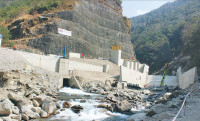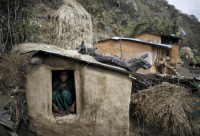Letters
Irresponsible
Following India's example blindly can be construed as the authorities' incapability of formulating independent strategies.In a recent news story (‘Prime Minister Oli hints at extending Covid-19 lockdown’, April 12), the prime minister is quoted as saying, ‘The infection rate in India is increasing so there is no reason to loosen the lockdown’. This is an irresponsible attitude for the prime minister of a sovereign nation to have.
On the day India introduced its own lockdown, with a four-hour notice, it had reported 536 cases as being positive for SARS-CoV-2, according to the widely-quoted John Hopkins University coronavirus tracker. On April 12, it had 8,446 cases.
On the other hand, Nepal had two the day it introduced its lockdown on March 24 (with only one of them being an active case). As of April 12, Nepal has twelve cases, with just one case of local transmission. Clearly, the difference in the rise in the number of cases is not similar.
Further, while 288 have died in India, there have been no deaths as a result of Covid-19 in Nepal. But this should not mask the fact that at least two deaths have been the direct result of hospitals refusing to treat patients for other illnesses. The lockdown will also have exacerbated the health of those who have not gone to hospitals because of the difficulty in travelling and because of the way the police are enforcing this lockdown. There is also a perception among the people, fuelled by media reports, that private hospitals are not providing proper care in some cases during these times.
In such a scenario, following India's example blindly can be concluded as the Nepali authorities' incapability of formulating independent strategies to check the spread of the deadly virus. With a lockdown, the government needs to do little to check the spread other than deploy security forces to ensure effective implementation of the lockdown. To put it another way, it just has to use brawn rather than brains—the latter definitely seems to be in short supply in the current administration.
Despite Nepal needing to come up with its own strategies, like controlling people's movement across the Nepal-India open border and locking down only certain 'cluster' areas, this is unlikely. This is because, in Nepal, concerned authorities have never thought about the welfare of the people. This is reflected in the number of hospital beds Nepal has, per 1000 people, which is 0.3. In comparison, Afghanistan has 0.5, India 0.6 and Sri Lanka 3.5 (the last much higher than even the United States, which has 2.9).
M Shrestha, Lalitpur




 15.12°C Kathmandu
15.12°C Kathmandu







